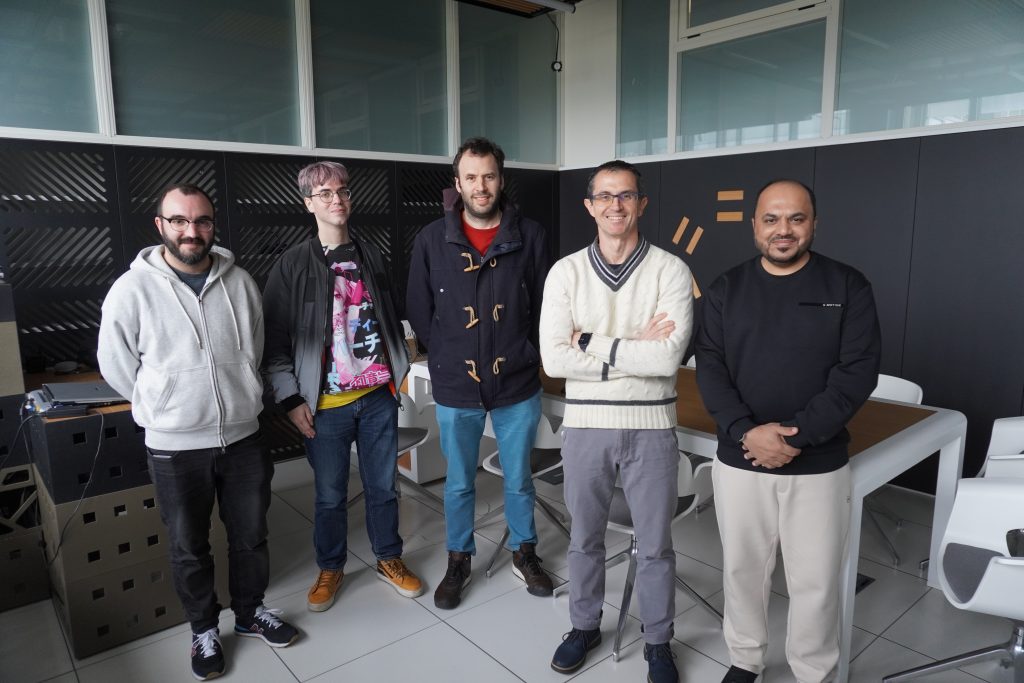
El CITIC de la UDC, referente en el reto de educar en IA
- The researcher at the CITIC of the University of A Coruña, Francisco Bellas, collaborates on various international projects, notably advising Qatar University on the creation of a national curriculum for AI and leading a working group on explainable AI at the European Digital Education Hub of the European Commission.
Bellas is recognized for his work in cognitive and educational robotics and is a member of the expert committee on AI education of the Xunta de Galicia.
A Coruña, August 13, 2024.-
Education is a key sector in the technological revolution associated with Artificial Intelligence (AI). In this regard, the Research Center for Information and Communication Technologies (CITIC) at the University of A Coruña (UDC) plays a crucial role in creating new educational initiatives and in international collaboration to develop advanced AI curricula.
CITIC researcher Francisco Bellas teaches programming, autonomous robotics, and machine learning in various undergraduate and master’s programs at UDC. He is also a member of the expert committee on AI education for the Xunta de Galicia, contributing to the development of educational policies and strategies.
Currently, Francisco Bellas is involved in a project at Qatar University titled “Developing an Evidence-Based Educational Framework for Artificial Intelligence: An Exploratory Study of Secondary School Teachers’ Outcomes, Experiences, Competencies, and Efficiency.” This three-year project, funded by the Qatar Innovation and Research Development Council, aims to develop an AI curriculum framework for secondary schools in Qatar. The project was awarded to Professor Zubair Ahmad at Qatar University and includes four local researchers and two international collaborators, one of whom is Francisco Bellas.
In the first six months of the project, the first set of evidence collection tools has been presented, and a pilot test has been conducted, with data currently under analysis. During this period, the project’s principal investigator, Zubair Ahmad, has visited CITIC at UDC twice to collaboratively develop the data collection instruments with Francisco Bellas.
Understanding Technology as the First Step
The importance of training professionals in AI is evident given the growing labor demand in this field. However, it is also essential to prepare new generations for a world deeply influenced by AI. Understanding this technology is the first step toward integrating and harnessing its benefits.
Educational administrations are working hard to create formal curricula for AI education at pre-university levels, including Primary, Secondary, and Baccalaureate education. These initiatives are crucial, as adaptations of existing resources are not sufficient. It is an ambitious goal that requires the support and collaboration of teachers and AI experts to develop specific curricular proposals and advance the educational community.
In this context, Bellas stands out for his active collaboration with the European Commission, where he will lead a working group of the European Digital Education Hub composed of more than 30 experts in the field of AI from September to December 2024. The goal is to develop new recommendations and resources to ensure that AI-based educational tools are unbiased, responsible, transparent, and ethical, promoting explainable AI.
Francisco Bellas is also recognized for his work on the recently completed European project AI+, coordinated by UDC. This project developed and tested a set of teaching units for high school students, creating a reliable and viable pilot curriculum that was introduced into the regulated education of participating European centers starting in the 2023/24 academic year.
Through his work on projects like AI+ and his participation in international initiatives, Francisco Bellas and CITIC are positioning themselves at the forefront of education in Artificial Intelligence, a challenge that must be met with rigor and responsibility.





